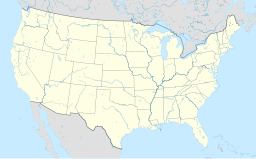Newtown Township, Delaware County, Pennsylvania
| Newtown Township | ||
| Township | ||
|
The Square Tavern
|
||
|
||
| Country | United States | |
|---|---|---|
| State | Pennsylvania | |
| County | Delaware | |
| Elevation | 384 ft (117.0 m) | |
| Coordinates | 39°59′25″N 75°24′14″W / 39.99028°N 75.40389°WCoordinates: 39°59′25″N 75°24′14″W / 39.99028°N 75.40389°W | |
| Area | 10.1 sq mi (26.2 km2) | |
| - land | 10.0 sq mi (26 km2) | |
| - water | 0.1 sq mi (0 km2), 0.99% | |
| Population | 12,216 (2010) | |
| Density | 1,166.0/sq mi (450.2/km2) | |
| Settled | 1681 | |
| - Incorporated | 1684 | |
| Timezone | EST (UTC-5) | |
| - summer (DST) | EDT (UTC-4) | |
| ZIP Code | 19073 | |
| Area code | 610 and 484 | |
|
Location of Newtown Township in Delaware County
|
||
|
Website: www |
||
Newtown Township is a township in Delaware County, Pennsylvania, United States. Prior to 1789 it was part of Chester County. Including its history as part of Chester County, it is the oldest township in Delaware County. The population was 12,216 as of the 2010 census.
Newtown Square was the name used for the townstead with the majority of early settlers being Welshmen. These Welsh "Friends" (Quakers) needed a road to facilitate their journey to meeting, the only established road at the time being Newtown Street Road, which ran north and south. As such, in 1687, an east-west road was laid out (Goshen Road) so the Friends could attend either Goshen or Haverford Meeting. By 1696, these friends had become numerous enough to hold their own meeting in Newtown and continued to meet in a private home until the completion of the Newtown Friends Meetinghouse in 1711. In the 18th century, Newtown was basically a farming community. Blacksmith and wheelwright shops emerged on the main arteries to service horse and buggy travelers. Taverns and inns were also opened to accommodate local patrons as well as drovers taking their livestock to the markets in Philadelphia.
During the 19th century a number of mills sprang up along Crum Creek (the western border) and Darby Creek (in the northeast corner of the Township). These included saw mills, paper mills, shingle mills, and a woolen factory. In the Darby Creek area a number of tenement houses were built as well as a general store to service the needs of the mill workers.
In 1860, the population of Newtown Township was 830; the population of Philadelphia was approximately half a million. At this time, the railroad, so called the "Iron horse," was laying track out of Philadelphia in all directions with service to Chester, Media, West Chester, and Radnor ... but not Newtown Square. As these towns, as well as stops along the way, grew and prospered, mills closed and businesses declined in Newtown Square. By 1890, the population had fallen to 648.
...
Wikipedia





